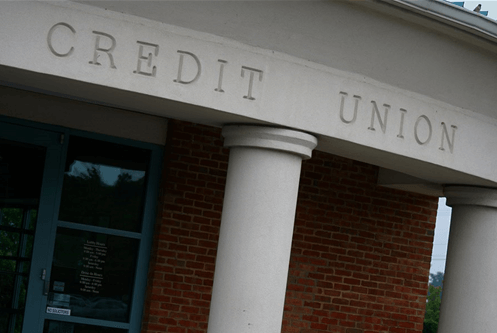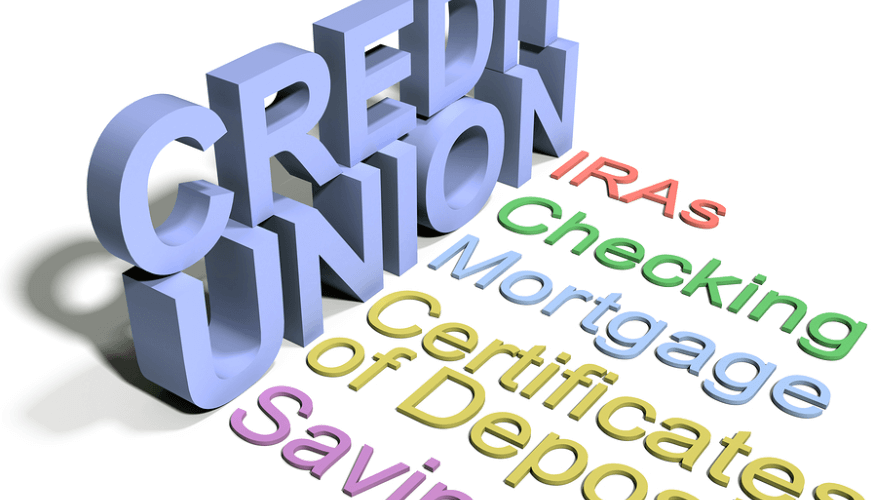Overview: What is a Credit Union
If you haven’t heard the news yet, credit unions are experiencing a strong uptick in growth. The Credit Union National Association reports that credit unions are projected to continue in loan growth in the foreseeable future.
As of 2016, more than 102 million people own credit union accounts across the U.S., according to MyCreditUnion.gov. You may be asking, “What is a credit union bank?”
The short answer is that credit unions are not banks in the traditional sense of the word. So, what are credit unions, exactly?



Image Source: What Is a Credit Union?
See Also: What Is Debt Consolidation? – Is It Good or Bad? (Ways to Consolidate & Explanation)
What Is a Credit Union? A Brief History
To answer the questions, “What are credit unions?” and “How do credit unions work?” a brief overview of the history behind credit unions will lay the foundation.
MyCreditUnion.gov gives the definition of a credit union as a not-for-profit financial cooperative that is owned by its members and chartered by the government.
The first rural credit union was established by Friedrich Raiffeisen in 1864, and the first credit union in the United States was formed in New Hampshire in 1909. The goal of these credit unions was to enable the community to help its members with small loans. These loans could possibly save a family’s farm or home. Larger institutions denied these individuals for various reasons.
In 1934, President Franklin D. Roosevelt signed the Federal Credit Union (FCU) Act to authorize credit unions in all states. His mission was to develop not-for-profit credit unions in an attempt to “promote thrift and sound financial practices.”
To ensure that credit unions are safe, the National Credit Union Association (NCUA) and the National Credit Union Share Insurance Fund (NCUSIF) were created in 1970. Throughout the 1970s, laws were implemented to allow credit unions to offer services, like mortgage loans and share certificates.
In 1985, members received more affirmation about the security of their money when the United States Government announced it would fully back all NCUSIF credit unions.
Understanding what is a federal credit union compared to a privately insured one can mean knowing that your money is backed by the U.S. Government in case of loss; however no member of a federally insured credit union has ever lost money in the cooperative. In recent years, the amount of share insurance protection has increased from $100,000 to $250,000.
What Makes a Credit Union Different? What Are Credit Unions?
What is a credit union like today? You can do many of the same transactions at a credit union as you would at a bank, such as open a savings or checking account, obtaining a debit or credit card, and applying for a loan. However, banks are for-profit institutions while credit unions are not-for-profit cooperatives. At banks, the stockholders receive a share of the profit. Credit unions, on the other hand, are made up of the members, and the net income is assigned to savings, loans, and new products and services.
The credit union’s members own the cooperative and vote on a board of directors that manage the institution on their behalf. Since there are no stockholders, the profits are returned to the members. These profits not only mean new products and services, but can include lower auto and mortgage loan rates and reduced fees.
Banks, however, hire a board of directors voted into position by the stockholders, according to the World Council of Credit Unions. The board members do not have to use the bank’s products and services.
Getting a loan for a small business, farm, automobile or home may be easier and less expensive if you can obtain the loan through a credit union instead of the bank. With lower fees and reduced rates, a credit union may be the better choice.
Don’t Miss: What Is Swing Trading? (Basics, How-to, & Strategies)
All-in-One Change Management Tools
Top Rated Toolkit for Change Managers.
Get Your Change Management Tool Today...
How Do Credit Unions Work?
Credit unions focus on serving their members with products and services that feature affordable rates. The small fees you incur from using the credit union are set aside and used to fund other members’ loans. These fees include the interest rates you pay on small business loans, auto loans, and mortgages.
The cooperatives promote lending to members only if they have the ability to repay. The members pool their savings to lend to other members and continue saving the net income to complete the cycle. This is how the credit union is run on a daily basis.
Members vote for directors to manage the credit union on a volunteer basis. This board of directors hires staff and management to handle the day-to-day tasks of the cooperative.
A typical credit union provides the following products and services:
- Checking accounts
- Savings accounts
- Money market certificates
- IRAs
- Direct deposit
- Mortgages
- Equity
- Auto loans
- Student loans
- Personal loans
- Individual retirement accounts
- Credit cards
- Debit cards
- Online banking
- Mobile banking
- Mobile apps for banking
Some credit unions go a step further and offer exclusive services and products about how credit unions work:
- Business services
- Investments
- Insurance
- Trust services
- Financial planning
All members have a say in what happens at the credit union, regardless of their account balance or assets. Members truly have a voice at their credit union.



Image Source: How Do Credit Unions Work?
Related: What Is a Decent Credit Score? Get All the Facts! (What Is Bad Credit?)



Credit Union Financial Education – What Does a Credit Union Offer?
Credit unions may also offer you financial education about products and services so you can stay informed and avoid scams. This is a small sampling of what your local credit union may offer:
- Purchasing a new car – your credit union can offer advice on securing an auto loan, trading in your old car, and learning about the terms and conditions of financing.
- Receiving credit reports and credit scores – a credit union can help you to understand credit scores and obtain a free credit report without getting charged a monthly fee for reports.
- Mortgage options – your cooperative can show you how to clarify what you can afford before shopping for a new home and explain to you the pros and cons of mortgages and fees.
- Payday loans – credit unions can explain the cycle of payday loan debt and help you find alternatives, such as a low-rate credit card, emergency assistance or an individual plan with your specific credit union, especially if you have direct deposit.
- Avoiding identity theft – your credit union can tell you how to protect your privacy and how to report theft, fraud, and scams.
- Shared insurance coverage – any credit union employee should be able to explain to you the shared insurance protection, up to $250,000 through the NCUSIF.
- Paying off debt – financial planners or counselors can help you create a plan for dealing with debt and getting it under control to get you back on track.
- Saving for college – your credit union can help you open an account for college savings or point you to resources, such as financial aid with the FAFSA and the U.S. Department of Education Resources.
- Retirement planning – you can open retirement accounts at many credit unions and seek education and planning even 10 to 15 years before retirement.
These are all topics that you can discuss with staff at the credit union. Besides, what is a credit union without informed members?









Are Credit Unions Safer Than Banks? Are They FDIC Insured?
Currently, credit unions hold $100 trillion in assets and, according to MyCreditUnion.gov, not one penny of the members’ money has been lost. The NCUSIF protects funds up to $250,000, just like with the FDIC.
Banks typically raise fees to make a profit and charge high interest rates. By paying lower interest rates, you save more money over the course of the loan. Credit unions offer higher savings rates that will allow you to save more money at a faster rate. Not only are credit unions safer than banks, the risk is lower.
Credit Union Members – What Is a Credit Union Membership?
Banks are typically made up of multiple groups of people with little shared interest. The members of a credit union tend to have a common bond. These groups can include:
- Religious organizations
- Military, including one or more branches of the armed forces
- Education professionals, like teachers, principals, and staff
- Communities, like cities or small towns
- Employees under one employer or under the umbrella company of several businesses
- Labor union members and their families
- Homeowners’ association members
- The family members of a group of people included in a credit union
You can check with organizations you belong to or with your employer to learn if they have a particular credit union. Several organizations may use one specific credit union in your area, such as all the branches of the military being able join the Navy Federal Credit Union.
If you find a credit union you are eligible to join, but there are no local branches in your area, you can still open an account and do business electronically. Many ATMs work cooperatively with credit unions to provide a safe place for members to withdraw money or make deposits. Depending on the institution, you can also make deposits and transfers using your cell phone or another mobile device.
You can find credit unions in your area by accessing the CU Locator on MyCreditUnion.gov. The locator allows you to enter your address, city, state or zip code information into the search field. The search results will show you local credit unions and if they provide member services, ATMs, and a drive-through.
Popular Article: What Is Private Equity – What Do Private Equity Firms Do? (Definition & Types)
Free Wealth & Finance Software - Get Yours Now ►
Establishing Credit Union Memberships in School – What Are Credit Unions in the School?
One of the newer innovative credit union endeavors includes local elementary, middle, and high schools. Credit unions are living up to President Roosevelt’s dream of a place where all people can feel equal in voice while the cooperatives serve to promote thrift and teach students financial practices. So, what is a credit union for students?
These credit unions are student-run and teach students:
- The duties and importance of credit union roles, such as tellers, managers, bookkeepers, and computer operations
- The benefits of saving money
- Interpersonal skills, like communication, professionalism, and confidentiality
Working at a student-run credit union may help fulfill students’ prerequisites for graduation in classes for business, finance, money management, and career development.
The students learn the answers to the following questions by working with in-school credit unions:
- What are credit unions?
- How do credit unions differ from banks?
- Are credit unions safe?
- What products and services can you receive from a credit union?
- Who can join a credit union?
- How do credit unions work?
According to a study reported by MyCreditUnion.gov and conducted by the U.S. Department of Treasury, elementary students that learned about financial responsibility, planning, and institutions had a greater positive financial attitude and more knowledge than students who did not participate.
Learning how credit unions work can help set the stage for you, your family, and your community to get the most out of these financial cooperatives. Hopefully, this article has provided you with the necessary information regarding credit unions and has answered your question, “What is a credit union?”
Read More: What Is a REIT? Definition & Overview (Are REITs a Good Investment?)
AdvisoryHQ (AHQ) Disclaimer:
Reasonable efforts have been made by AdvisoryHQ to present accurate information, however all info is presented without warranty. Review AdvisoryHQ’s Terms for details. Also review each firm’s site for the most updated data, rates and info.
Note: Firms and products, including the one(s) reviewed above, may be AdvisoryHQ's affiliates. Click to view AdvisoryHQ's advertiser disclosures.





